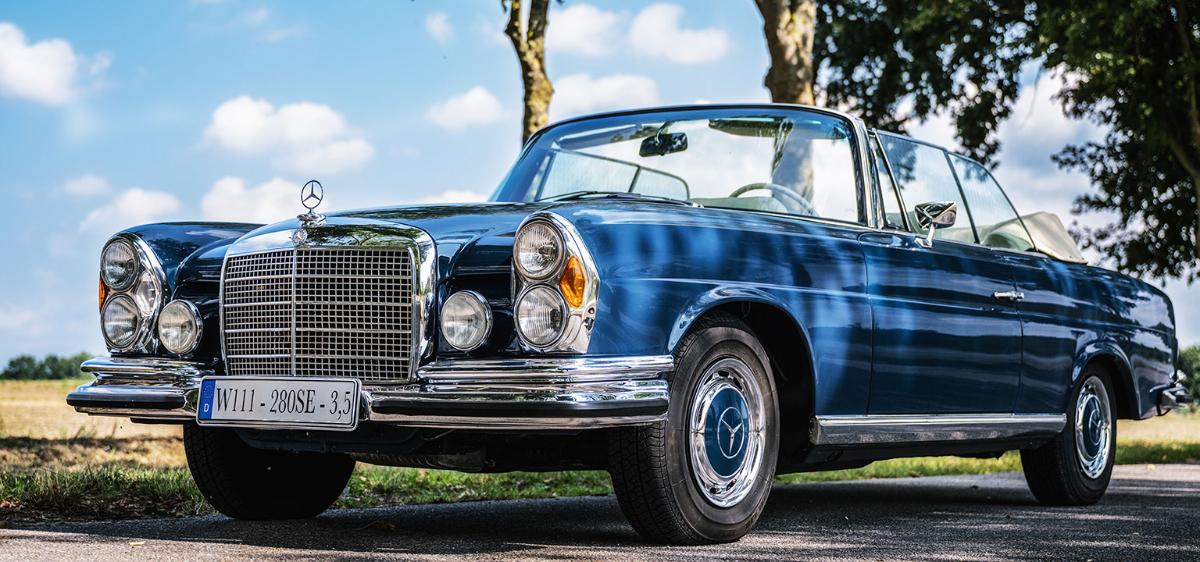To the OP, has anything about this requirement for inspections been verified? I tried looking it up, and all I'm able to see is that those inspection requirements apply IF one wants to register their vehicle as a "classic".
Seems entirely optional to me.
Yes, multiple sources living in different European countries have verified this info to me. This EU law was just passed at the end of 2020, and is in its roll-out stage of implementation right now.
You are correct in that this law specifically applies to that European classification of vehicle known as "Old Timer." The new law mandates that for anyone to register either his automobile or motorcycle as an Old Timer the vehicle may only be factory spec per the year it was manufactured.
I have been told there is still some wiggle room allowed in this Old Timer section of law in some of the EU countries where vintage auto and moto lobbies have enough weight to negotiate with the government. In Germany for instance, where the infamously strict TUV has been in place for decades, there is a huge vintage motorsport community with some government clout, so if one knows how to properly navigate TUV then this new EU-wide law isn't the end of all modification culture.
Similar situations exist in other countries, as well, so for example Poland's healthy vintage racing culture will likely survive, especially as Poland is well known for defying EU mandates whenever Poland deems the EU Parliament has overstepped its bounds. Italy also has had certain very strict modification laws in place for years and years, but I've been told that one can make any mods one wants to one's vehicle in between the times of official technical inspection, although if the carabinieri need to fill a monthly quota then modded vehicles suddenly become a target even before official technical inspection. Surprisingly, a Swedish enthusiast has informed me his country's vintage and custom vehicle laws are relatively easy to navigate despite his govt's famous hatred for all things That Make Mother Gaia Cry.
Other countries have no wiggle room whatsoever, even surprisingly Hungary, which in the past decade has become famous for its clashes with EU Parliament when the Hungarian govt feels trod upon. One would think Hungary would be a wonderfully unrestricted place for vehicle modification based upon its habit of regularly giving EU Parliament the finger, but alas, a Hungarian enthusiast on ADVrider tells me the complete opposite is true! He says it's common among Hungarian moto riders to deride their country as "Absurdistan" for its inexplicably hard stance against modified vehicle culture. A Portugese rider tells me his country is warning all moto enthusiasts that there will be stricter new technical inspections now, but as of yet hasn't yet gotten around to actually doing anything, so it's kind of like the sword of Damocles for them at the moment, especially as apparently the Portugese govt has been threatening moto riders with such strictness since something like 2016 or 17.
Basically, EU Parliament is most certainly an oligarchy of self righteous bureaucrats, but individual countries still have some leeway in exactly how they will implement the minutae of EU mandates after the collective royal scepter has been waved across the land; it pretty much comes down to how strong an individual country's recreational vehicle lobby is. Belgium, I'm told, has an Old Timer lobby, but it's very weak, thus Belgium's adoption of the zero tolerance stance.
For the record: most of my overseas contacts in the vintage and modification culture are found on the ADVrider forum, the Royal Enfield forum, and the Vintage Engine Tech subforum of the Speed Talk forum. The remaining contacts are found here on Expo and the Samba forum.
If you'd like to read through what I consider to be the most informative firsthand accounts of Europeans currently dealing with the implementation of this new EU law:
https://advrider.com/f/threads/is-this-really-happening-in-europe.1498140/
Also for the record: why would anyone in the EU want to register their vehicles as Old Timers?
1) In some countries the annual insurance, taxation, and registration costs are a bit lower.
2) In some countries the restrictions against modifications have historically been fewer.
In some places the insurance, taxes, and registration were actually more expensive than for regular vehicles, nonetheless the modification restrictions were still fewer, and clearly for anyone in the modding and racing culture this would still be worthwhile.


